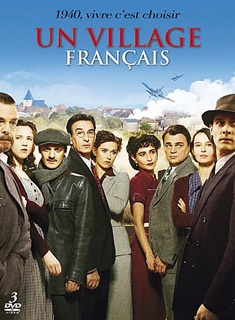On May 14, I posted this graphic to a Francophile Facebook group and asked why Germany’s deaths were a fraction of those in France even though they had about the same number of infections. Today, the NYTimes ran an article that seems to answer the question that is apparently circulating around France, too. The article is about the book “Strange Defeat” written in the early 1940s by
Bloch, a historian and World War I veteran. He volunteered to serve on the front lines in 1939 and later joined the Resistance, before being executed by the Gestapo in 1944.
In 1940, as a captain who oversaw fuel supplies at the headquarters of France’s First Army, he enjoyed an insider’s view of France’s defeat: an overly bureaucratic and rigid military leadership, hewing to theories and traditions, was incapable of reacting to the German threat.
While French leaders were re-enacting World War I with an emphasis on infantry and artillery, the Germans came with tanks, airplanes, trucks and motorcycles.
In a painful summary of France’s defeat, Bloch wrote: “Our leaders, or those who acted in their names, were incapable of thinking in terms of a new war.’’ He added, “The German victory was, essentially, an intellectual victory.’’
 I have just watched the first two of seven seasons of “Un Village Français” which starts in 1940 with the German invasion of a village near Besançon. This article is a stunning insight into what I am seeing unfold in this series. I have just witnessed the “aryanization” of a Jewish-owned cement plant by the man in the center holding the hand of the woman in the red dress in the photo at left. It seems like France, itself, may be starting to recognize the pattern. The NYTimes article states:
I have just watched the first two of seven seasons of “Un Village Français” which starts in 1940 with the German invasion of a village near Besançon. This article is a stunning insight into what I am seeing unfold in this series. I have just witnessed the “aryanization” of a Jewish-owned cement plant by the man in the center holding the hand of the woman in the red dress in the photo at left. It seems like France, itself, may be starting to recognize the pattern. The NYTimes article states:
In a meticulous analysis of the handling of the epidemic by France and Germany, “Le Monde’’ concluded that the crisis had led to another replay in the “eternal match between France and Germany, at the end of which the winner always seems to be the same.’’
It was the latest chapter in a relationship that has tortured and defined France since it was defeated by Germany in the Franco-Prussian War of 1870, putting an end to French hegemony in Europe, said Pierre Vermeren, a historian who teaches at the University Paris 1 Panthéon-Sorbonne.
“In the 1870s, after France realized that it was outclassed by Germany, there was what was called the German crisis in French thinking,’’ Mr. Vermeren said. “France couldn’t understand: ‘How did the Germans do it? Why are their schools better? Why are their soldiers better trained? Why are their soldiers athletic, and not ours?’
“This has been going for 150 years.’’
